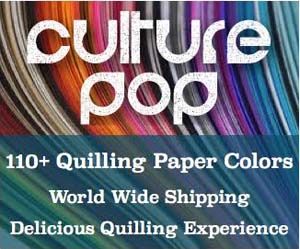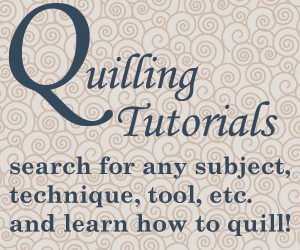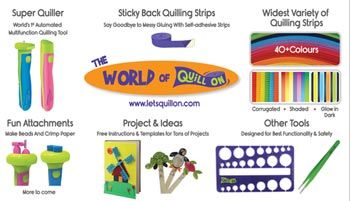Last week I began this new series about starting an online shop. I talked about some different types of websites you could start to have your shop. From having a free blogshop, to a premium shop on an ecommerce platform. Click here to read the post.
If you do not want to go the route of having your own website set up, there is another, sometimes more affordable, option. Online marketplaces have sprung up like daises on the internet in the past decade or so. There are well known large ones, such as Ebay and Etsy, and there are numerous smaller ones as well. I’ll mention a few today (most that I have personally used and am using) and talk about the pros and cons of having your shop in a marketplace.
PROS – some general positive points about having your shop in a marketplace:
- Exposure – your shop will already have an audience. You will still need to do a LOT of promoting yourself, but simply by being in the marketplace you already have a certain amount of exposure.
- Cost – each marketplace has its own cost guidelines. Some of them are free if you only list a certain amount of items or only sell a certain $ amount. Some have set percentage cost of sales. Others charge per item you list. Still others have a set monthly fee. Read the info about each marketplace before signing up so you understand the fees that will be charged. But overall it can be much less expensive to have your shop in a marketplace rather than having a stand alone website of your own.
- Easy setup – it is easy to set up your shop in a marketplace. You don’t have to worry about registering a site, finding a theme, setting up the shop, etc. All you need to do is list your items!
- Feedback – in most marketplaces there is a way for customers to leave feedback. Of course if you have a great shop, you will get great feedback. It is a nice way for new customers to see what kind of a shop you are. I’m sure this is something you could set up for your own stand alone website as well, but it is not a standard feature as far as I know, so you’d have to figure out how to add it.
CONS – some of the not so great points about having your shop in a marketplace:
- Flexibility – when you have your shop in a marketplace there is usually a standard form for your shop. Your banner is in a particular spot and is a particular size. Your sidebar looks a standard way, etc. You cannot change these things. If there is something about the setup you don’t like, you don’t have the flexibility to choose a different theme or move things around. You need to settle for what it looks like.
- Branding – when your shop is in a marketplace, you lose some of your uniqueness and branding. Yes, you can have a banner, avatar, etc. but that’s the extent of it. The basics of your shop look like every other one in the marketplace. Color, layout, background, etc.
- Cost (sometimes) – if you have a large shop with numerous items and your chosen marketplace charges for each item listed, it can get pricey. Also if you sell a high volume of goods and your chosen marketplace charges a percentage of your sales, it can get pricey. If, however, your chosen marketplace charges a monthly fee, then it can be very inexpensive! So think about the number of items and volume of items you expect to sell and make that part of your decision of what platform to use. Of course you can always factor in the cost of the marketplace and add that to your items itself.
The marketplaces I will go into detail about today are Ebay, as it is a big one though I don’t use it myself, and three that I use myself – Etsy, Meylah, and Zibbet. I will give some details about them as well as share my opinion and some of the highlights of each.
Ebay – Ebay is a huge marketplace which originally was set up as auctions for selling used items. It has grown a LOT since then. It is still great for the original purpose, but there are also many other sellers on Ebay who have their goods set at certain prices, not auctioned. Some sellers do well on Ebay selling unique products, necessary products, handmade goods, vintage items and more. One thing to note, if you are looking to sell quilling supplies, is that most suppliers specifically say that their goods are NOT to be sold on Ebay. I am not sure of the reason, but you do need to be aware of this and probably steer clear of Ebay. I’m assuming that there are other suppliers other than paper quilling suppliers who don’t want their goods sold on Ebay. However, I only personally have experience with the goods that I sell in my own online shop so can only speak for them. I don’t know much about the cost of using Ebay as I have never sold anything on there personally. Even though I do not recommend using this marketplace due to the restrictions from suppliers I wanted to mention it so that you are aware of that restriction!
Etsy -Etsy is a very large and still growing online marketplace. When you have a shop on Etsy your products already have a huge potential customer base. The trick is to get your products in front of the eyes of those customers. You do this by having great photos and the right tags, title, and description for your products. If you have unique products, Etsy can be a great platform because your products will be seen when they are searched for. If, however, you sell something that is quite commonly made by others as well, it can be more difficult getting your products to show up in the front pages. In that case you will have to have a lot of items and you will need to spend a lot of time getting your titles and tags just right to show up in search. Jewelry is one area where there is a lot of competition on Etsy. If you are thinking of joining Etsy as your marketplace, do some searches to see how many items similar to yours there are. The cost of Etsy per month can vary. It costs $0.20 each time you create/renew an item (this lets your item be listed for 4 months). You also pay 3% of all sales. If you renew a lot more items then you sell, it can get pricey. If however, you sell quite a lot of items and therefore simply renew the ones that have sold as well as a few others, then the cost is worth it. The good thing is that you can always check to see what your bill is, so if you have a monthly budget you can stick to it. I have been selling on Etsy for almost 4 years. It has gone through changes in that time. Some good, some not as good. But it is still growing and is a popular marketplace (great one to shop in as well!). Some of the nice features that Etsy has are the abilities to:
- say how many of an item you have in stock
- create variations of an item – so customers can choose whether they want a red or a blue pair of earrings, for example
- upload files so when customers purchase them (like tutorials) they can automatically download them
- Create coupon codes
Meylah – Meylah is a marketplace which I joined about 3 years ago. I joined it at the time because Etsy did not have a way for customers to automatically download .pdf files – I had to email them once they were bought (this has since changed and with Etsy you can now have customers automatically download their .pdf files). Meylah is unique in that within itself there are other smaller marketplaces that are created. Anyone can create one. So I could create a marketplace just for paper quilling and invite all the shops that sell paper quilled items to join. So anyone who was looking for paper quilling items could be directed to that mini- marketplace. The cost of using Meylah is related only to how much you sell. You pay 2.75% of the amount that you make. This is nice since if you don’t sell much, you don’t pay much! I only have my tutorials listed on Meylah currently, as it was too difficult to have my jewelry listed in multiple places and keep track of what is in stock or not. Some of the nice features Meylah has are the abilities to:
- create mini-marketplaces with like-minded shops
- upload files so when customers purchase them (like tutorials) they can automatically download them
- have a blog that comes free with your shop
Zibbet – Zibbet is the third online marketplace that I have personally used. It is also the most recent. It is fairly new, but has grown quite rapidly in the past year or two. They are evolving, always working on and adding new feature based on customer suggestions, which is great. They don’t have the feature yet to upload files for customers to purchase and download automatically, but it is something in the works. One cool thing about Zibbet is that you can try it for free. There are currently 3 levels of plans you can sign up for. For a free shop you can sell up to 10 items, with no fees at all. They also have a $4 a month and an $8 a month plan (those are the prices for if you pay for a whole year. pay-by-month prices are slightly higher). Other than the monthly fee, there are no other costs. So you can sell as much as you want and still have the same low cost. Cool! One thing I like about the Zibbet shop is that it is SO easy to have a sale. You can choose which sections are on sale and choose a discount percentage. Done with your sale? Just turn it off! I am actually in the slow process of putting all of my jewelry on my Zibbet shop. It was getting too costly having over 200 listings on Etsy and having to renew several items each day. On Zibbet I can have as many listings as I want and not worry about it. I will still keep my Etsy shop, but I will list only the best selling items there while promoting my Zibbet shop more. Some of the nice features Zibbet has are the abilities to:
- Easily put your whole or parts of your shop on sale (pro plan)
- Create coupon codes (pro plan)
- Add your items to gift guides for more exposure (pro plan)
- have no listing or transaction fees
There are other marketplaces out there as well. Here are some of the more common ones. I do not belong to any of these, so don’t know a lot of details, but you can click on the links to see the sites and see whether they’d be a good fit for you:
Looking for even more options? Click here to read an article featuring 29 online marketplaces great for handmade goods and/or supplies.
Opening Multiple Stores – with so many online marketplaces to choose from, it can be tempting to open in multiple platforms to see which works the best for you. Be careful when you are starting out, it is easy to get overwhelmed! Start with just one, get it set up well, and then if you think it would be beneficial, feel free to start another one so you can get a feel of it. It is usually best to stick with just one or two, but if you can keep up with them, having more shops will of course get you more exposure.
I hope this post has helped those of you contemplating opening your shop in a marketplace. If you have any questions, leave them in the comments below!
Stick around and check out some of the other fun stuff on the blog!
Click here to view free paper quilling tutorials!
Click here to view paper quilling tips and tricks!
Click here to view a list of places to buy quilling supplies around the world!
Click here to view some of my own quilling projects, with tips so you can make your own if you’d like!

























Zibbet sounds like a better option than etsy for beginners…but etsy is more popular…
On which marketplace have you got most sales?
Which one would you suggest for beginners who don’t have many product listings?…does having a store in a place like etsy give you higher chances of sales?
I have gotten more sales on Etsy, but to be fair, I was there for 3 years longer and I promoted my Etsy shop. I am now slowly transferring over to promoting my Zibbet shop instead, so it’ll be interesting to see in the next couple years which gets more sales! I think Etsy only gives you a higher chance of sales if you have something very unique. With jewelry, the competition is SO strong that there is not much of higher chances there. As long as you promote your shop on a facebook page, a blog, etc. then it doesn’t matter which place you set it up 🙂
Oh so it’s all about marketing!
Is there an option to pay through debit card for the plans on etsy & zibbet? From what I know they only accept credit cards.
Also another thing, I am unable to read the comments completely because the Gravatars overlap a portion of the comments. It’s been like this for a long time…initially I thought it was my laptop…I tried changing the zoom level but didn’t help…even when I accessed it from my iphone I had the same issue, so I’m unable to read the complete comment on any of the posts. Could you please fix it
Thanks for letting me know about the comments. Usually I only check them on my computer and they work fine there. So I checked my iPad and phone and it has the problem like you said. I will look into it!
I use PayPal to pay my fees on Zibbet and Etsy